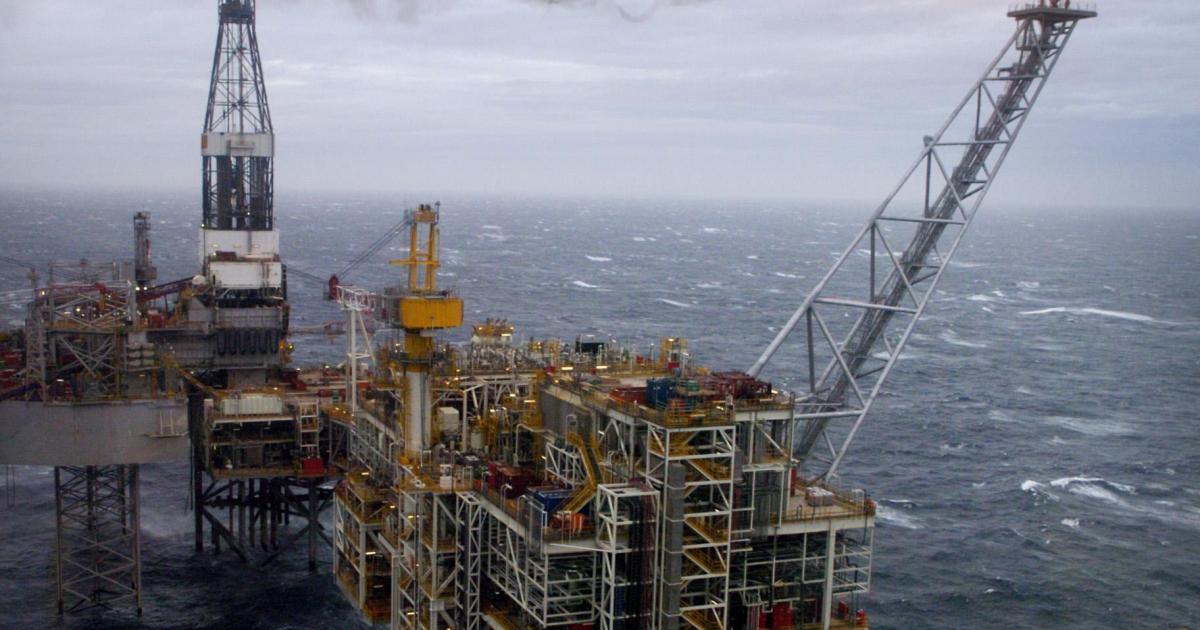According to a new independent study, up to 7.5bn barrels of oil and gas could yet be produced from UK waters, which is 3.2bn more than Labour predicts.
Offshore Energies UK (OEUK), the leading trade body for the country’s offshore energies industry, says additional domestic production would reduce reliance on imports and protect jobs – adding £165bn in economic value.
The UK has 7.5bn barrels of oil and gas remaining to produce, 3.2bn more than the government forecasts, OEUK has reported (Image: Juan Cuetos) The Climate Change Committee, which advises the government, says even in a scenario where the UK meets all its energy targets on time, homes and businesses will still use between 13bn and 15bn barrels of oil and gas.
But current government forecasts suggest the North Sea will produce fewer than four billion barrels, meeting under a third of that need.
READ MORE: East Anglia’s energy projects in geologically ‘just right’ Goldilocks zone
OEUK has warned that without government support for the oil and gas sector, the country could become dependent on imports for 80pc of its needs within a decade.
The industry has been calling for continued licences and changes to windfall tax, with the government expected to outline its policies this autumn.
RECORD LOW
The UK’s total energy production hit a record low in 2024, importing more than 40pc of its total energy needs from overseas.
The UK’s offshore basin is naturally declining – with more than 280 active oil and gas fields today, but around 180 expected to cease production by 2030.
Energy leaders say the production of gas remains critical in the east of England despite the country’s transition to renewable energy.
A North Sea oil rig (Image: Danny Lawson/PA Wire) In January, UK gas storage levels became “concerningly low”, with “less than a week of demand available”.
READ MORE: Gas production ‘remains critical’ in East as UK has ‘less than a week of gas left’
Centrica, the owner of British Gas, blamed the shortage on freezing weather, high demand for gas-fired power, and Russia’s decision to cut gas pipeline supplies through Ukraine.
‘NOT ABOUT OIL AND GAS VERSUS WIND’
David Whitehouse, OEUK’s chief executive, said: “The independent report shows how the UK can make better use of its own North Sea oil and gas to power the country, protect jobs and cut the need for imports – while also accelerating renewables as part of the clean energy transition.
David Whitehouse, OEUK chief executive (Image: OEUK) “This is not about oil and gas versus wind but about whether we prioritise homegrown oil and gas over imports.
“The UK is at a record 40pc of imported energy, with policy decisions – not geology – driving an accelerated decline in North Sea production.
“In an increasingly volatile world, if we act now, the UK can meet more of its oil, gas and renewables needs from homegrown resources – we need it all.”
Mr Whitehouse said this approach is already being adopted by countries such as Norway and New Zealand.
READ MORE: Carbon storage test off Norfolk coast injected CO2 used for beer beneath North Sea
“Our message to government is to back pragmatic homegrown production, unlocking an additional £165bn of economic value to the country, protecting 200,000 jobs and meeting our climate goals,” he added.
“This means supporting continued production oil and gas in UK waters and bringing forward changes to the windfall tax when the government responds to key consultations expected this autumn.
“These are important times – back our North Sea energy and together we can help back the future of the UK.”
‘GAS REMAINS CRITICAL’
Kevin Keable, chairman of the East of England Energy Group (EEEGR) has said “the reality is that gas remains critical to keeping the UK running”.
Kevin Keable, chairman of the East of England Energy Group (EEEGR) (Image: Newsquest) “In 2024, gas still supplied a significant portion of electricity – and without swift connections to the grid for wind and solar projects, gas will continue to be a mainstay for electricity generation, home heating, and cooking for decades,” he said.
READ MORE: Bacton ‘overlooked’ again as government backs carbon capture projects elsewhere in UK
“The industry is vital to keep many of our regional businesses operating, contributing to our local economy.
“Moreover, the demand for electricity is skyrocketing. The rapid growth of data storage and AI technologies alone is placing immense pressure on our infrastructure.”
